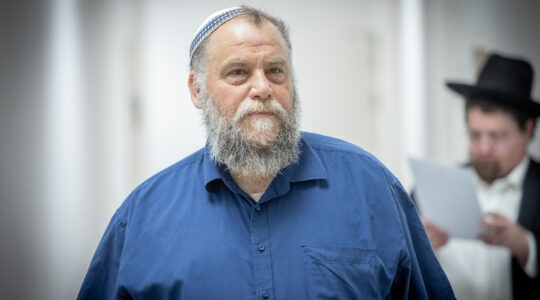ANKARA, Turkey (JTA) – Lately, the diplomatic traffic in the Middle East seems to have found a new avenue: the Turkish capital.
On Monday, both the Israeli and Palestinian Authority presidents addressed the Turkish parliament, marking the first time an Israeli head of state has spoken in the legislature of a Muslim country.
Days before that, Saudi Arabia’s King Abdullah was in town for the second visit to Turkey by a Saudi monarch in the past 40 years. That trip came just a few weeks after an official visit to Ankara by Bashar Assad – the first Syrian president to have come to Turkey.
This all would have seemed nearly inconceivable only a few years ago.
For decades, Turkey kept the Arab and Muslim countries of the Middle East at arm’s length as it focused on cementing its alliance with the West and distancing itself from the Ottoman Empire’s Islamic past.
But now Turkey, led by the liberal Islamic Justice and Development Party, known by the acronym AKP, is trying to strengthen ties with its neighbors while at the same time recasting itself as a mediator in the region.
“This has always been part of their game plan,” said Professor Henri Barkey, an expert on Turkey from Lehigh University in Easton, Pa. “The AKP has always felt that Turkey has punched below its weight internationally, that it had been too timid and sat in the corner.”
Now the AKP is promoting Turkey in the role as peace broker.
In his speech to the 550-member parliament in Ankara, Israeli President Shimon Peres suggested Turkey’s growing regional involvement gives it a role to play in helping solve the Middle East conflict.
“Turkey can make a unique contribution as both a global architect and a local actor,” Peres said.
“We may be saying different prayers, but our eyes are turned toward the same sky and toward the same vision for the Middle East,” he said in Hebrew, with translation into Turkish.
Peres and P.A. President Mahmoud Abbas came to Ankara to sign an agreement creating a joint industrial park on the West Bank-Israel boundary that is to be operated with Turkish help.
Cengiz Candar, a leading Turkish political analyst, says the industrial park project is indicative of the niche role Ankara — which has strong ties with Israel as well as Syria and Iran — would like to carve out for itself in the region.
“This whole exercise is a display of Turkey projecting ‘soft power’ in the Middle East,” Candar said. “Turkey can play the role of a facilitator.”
Turkey’s newly vigorous Middle East foreign policy is not without risks, analysts warn.
Its reputation on Capitol Hill suffered damage in February 2006 when the country hosted a visit to Ankara by Hamas’ leader in exile, Khaled Meshaal. Israel and members of the U.S. Congress immediately denounced the visit.
On the domestic front, Ankara’s growing relations with its Muslim neighbors has led some critics from the secular establishment in Turkey to accuse the government of pursuing an “Islamic” foreign policy in the Middle East that would reorient Turkey eastward.
“Domestically there is both excitement and concern about this new foreign policy in the Middle East,” said Murat Yetkin, an Ankara-based columnist for Radikal, a leading daily newspaper. “The excitement comes from rediscovering a geographical area you were once familiar with. On the other hand, there is concern about getting engaged too much.”
For Israel, despite the remarkable visit to parliament by Peres, Turkey’s new Middle East approach presents a mixed bag.
While it offers opportunities, such as Ankara playing the role of intermediary between Jerusalem and Damascus, the approach also diminishes some of the closeness Turkey and Israel have enjoyed in the past as isolated allies in a generally unfriendly region.
Over the last few years, the AKP government often has been more critical of Israeli actions than previous Turkish governments.
“The Turkey-Israel relationship is a lot less comfortable for Israel than it was six or seven years ago,” said Alon Liel, a former Israeli diplomat in Turkey who later became chairman of the Turkey-Israel Chamber of Commerce.
Liel attributed the change to the rise of figures such as Turkish Prime Minister Recep Tayyip Erdogan and President Abdullah Gul, whom Liel said “are much more balanced in their relations with the Arab world than their predecessors.”
Nevertheless, any expanded role Ankara wants to play in the Middle East, particularly that of a mediator in the Arab-Israeli conflict, will force Turkey to maintain its strong relations with Israel, Lehigh’s Barkey said.
“The Turks have a potential role to play,” he said. “The one very smart thing that the AKP has understood is that if you are going to have influence among the Arab countries, you have to have good relations with Israel.”





